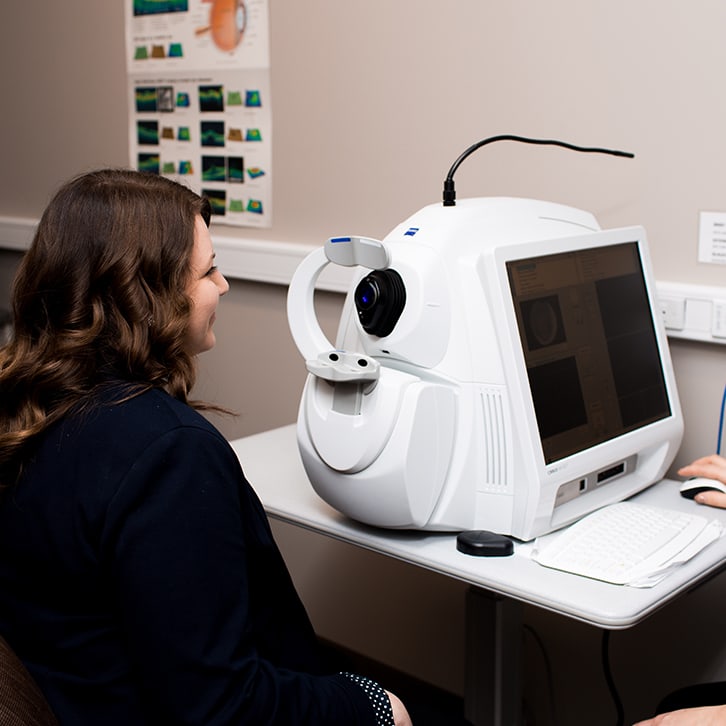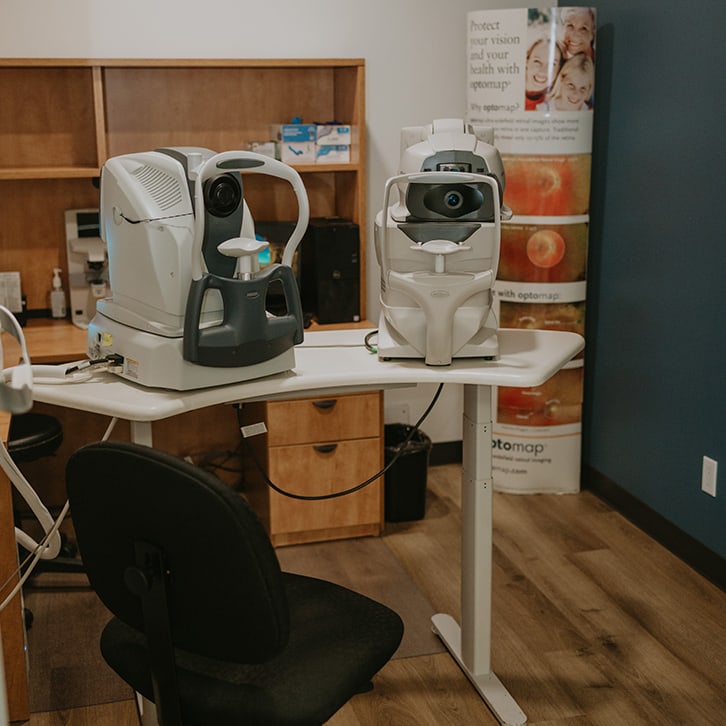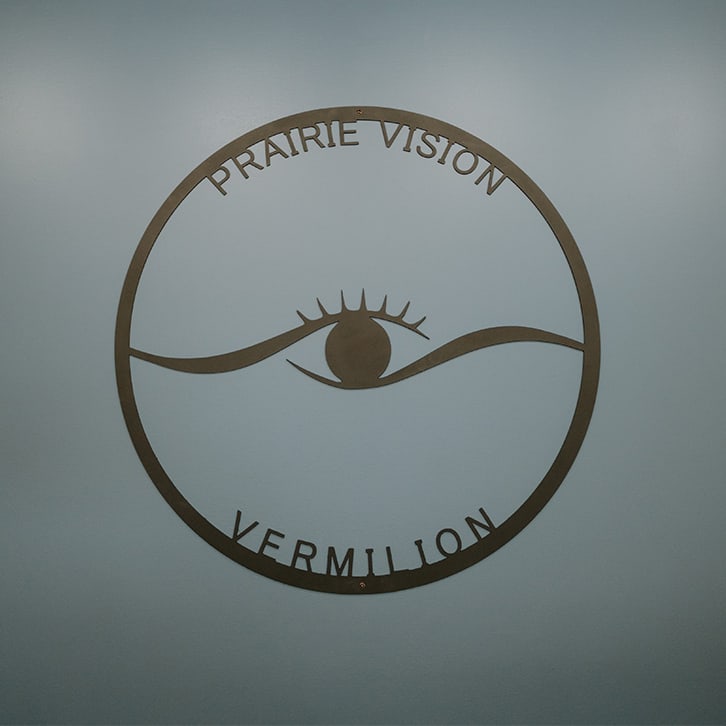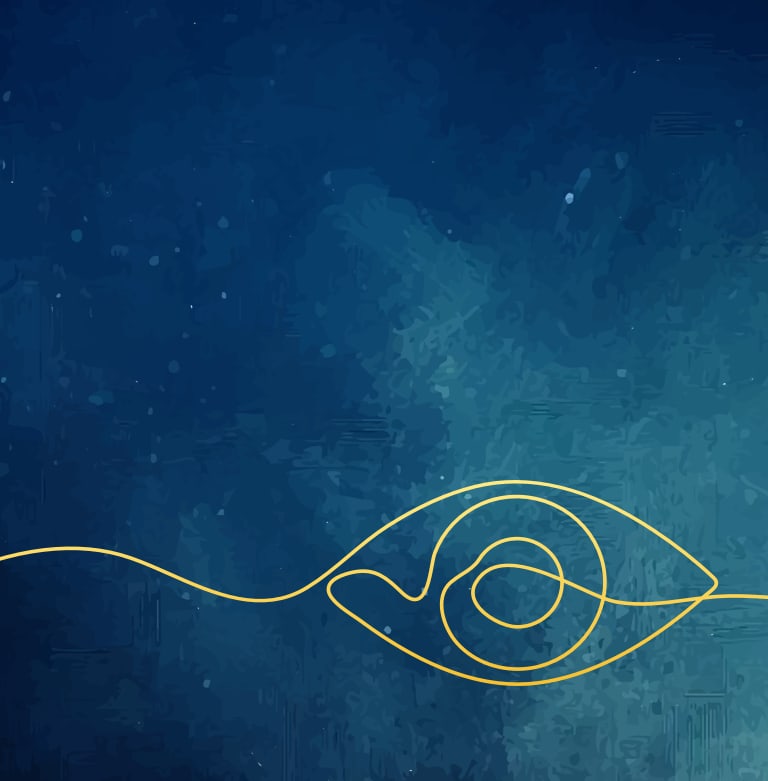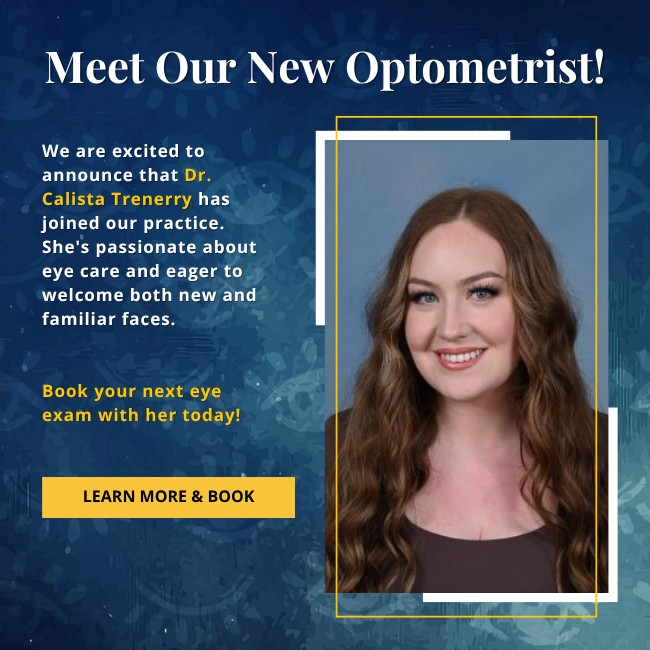Vision Therapy for All Ages: Strengthening the Eye-Brain Connection
Your vision is about more than just seeing clearly. While having good eyesight is important, true vision also relies on the connection between your eyes and brain.
Strong visual skills are essential for interpreting, understanding, and organizing visual information. They are crucial for everyday tasks like reading, writing, learning, and engaging with the world around you. When these skills aren’t fully developed, they can lead to learning challenges and other vision-related difficulties.
Vision problems can affect both children and adults, and both can benefit from vision therapy. Contact our team to schedule your consultation today.
Our Qualified Team
Our team offers personalized vision therapy programs for both kids and adults. Whether you’re looking for support with reading struggles, learning difficulties, or recovering from an injury, we are here to guide you.
Our therapists are accredited through Vision Therapy Canada, and both our optometrists and vision therapists have completed the Optometric Extension Foundation Clinical Curriculum so that you receive quality care.
What Is Vision Therapy?
Vision therapy is a specialized treatment to improve visual system dysfunctions, aiming to retrain how the brain processes visual information. Unlike regular eye exams, it involves personalized exercises tailored to each patient’s needs.
Vision therapy is suitable for all ages. It helps children with conditions like strabismus or amblyopia and adults with long-term visual issues.
At Prairie Vision, our family-focused programs include weekly one-on-one sessions with a qualified therapist and at-home exercises, with progress assessments every 8 weeks to make sure you’re on track.

Signs & Symptoms of Vision Problems
Vision plays a key role in learning, and some learning disabilities share symptoms with vision problems. A thorough eye exam can help rule out visual issues, prevent misdiagnosis, and get the right support for you or your child.
Parents and guardians can also help their children by watching for common signs and symptoms of vision problems, including:
- Complaints of blurred vision or tired eyes
- Frequently rubbing of eyes or squinting
- Difficulty reading for long periods or moving their head when reading
- Short attention span or difficulty staying focused on a task
- Frequent headaches when reading or doing homework
- Struggles with handwriting, spelling, or recognizing letters and numbers
Adults might experience similar issues, like eye strain or trouble concentrating after a day of reading or working on a computer.
What Can Vision Therapy Treat?
Our vision therapy programs are designed to treat various visual issues. Whether you’re struggling with reading or recovering from a brain injury, we offer customized solutions to address your specific needs. Vision therapy can help with:
- Acquired and traumatic brain injuries (e.g., from car accidents, strokes, concussions)
- Reading below grade level
- Binocular vision issues, like eye teaming, tracking, and depth perception
- Learning-related vision problems, ADD, and ADHD
- Convergence insufficiency (when the eyes don’t work together)
- Sports vision and performance
- Vision problems like amblyopia and strabismus
Transform Your Vision with Virtual Reality Therapy
We also offer Virtual Reality Vision Therapy through Vivid Vision. This innovative therapy uses virtual reality (VR) technology to create engaging, interactive exercises that help improve your visual skills.
Whether you’re looking to improve eye coordination, depth perception, or other visual abilities, Vivid Vision offers a fun and effective way to train your brain and eyes. VR therapy is available for patients of all ages and can be a great addition to traditional vision therapy programs.

See if Vision Therapy Can Make a Difference
Vision therapy is a noninvasive, nonsurgical approach to improving the connection between your eyes and brain. Strengthening visual skills can help reduce strain and improve comfort and efficiency in daily tasks.
For children, vision therapy can improve confidence and self-esteem, helping them succeed in school and play. For adults, it can ease the strain from long hours at the computer or doing paperwork, making it easier to focus and feel more comfortable throughout the day.
Call us today to schedule a consultation, and we’ll work with you to develop a customized plan for better vision and a more comfortable life.
Explore Our Services
Protecting Your Vision
Your eyes are your windows to the world and should be nurtured regardless of your age or physical health. A comprehensive eye exam allows our team to detect, manage, and treat eye issues among children and adults.
From early detection of vision problems in children to managing age-related eye conditions in seniors, our experienced eye doctors provide personalized care for every patient.
Your eye health is our priority, and we are committed to delivering the care you need when you need it most. Trust Prairie Vision to be your partner in eye health for life!
Come Visit Our Locations

Wainwright
We serve clients of all ages from Wainwright, Viking, Vermilion, Provost, Lloydminster (Alberta), Macklin (Saskatchewan), and the surrounding areas.
- 2802 15th Ave, Unit 2
- Wainwright, AB T9W 0A4
- Phone: 587-606-0270
- Fax: 780-842-3443
- Email: [email protected]
Hours Of Operation

Vermilion
We serve clients of all ages from Wainwright, Viking, Vermilion, Provost, Lloydminster (Alberta), Macklin (Saskatchewan), and the surrounding areas.
- 5010 50 Street
- Vermilion, AB T9X 1M5
- Phone: 587-606-0394
- Fax: 780-853-6504
- Email: [email protected]
Hours Of Operation
A Variety of Brands Available to You
- Lafont
- Michael Kors
- MODO
- Silhouette
- Ray-Ban
- Ted Baker
- Maui Jim
- Alfred Sung
- Eco
- EasyClip
- Evatik
- FYSH
- Nicole Miller
- Nike
- Lafont
- Michael Kors
- MODO
- Silhouette
- Ray-Ban
- Ted Baker
- Maui Jim
- Alfred Sung
- Eco
- EasyClip
- Evatik
- FYSH
- Nicole Miller
- Nike






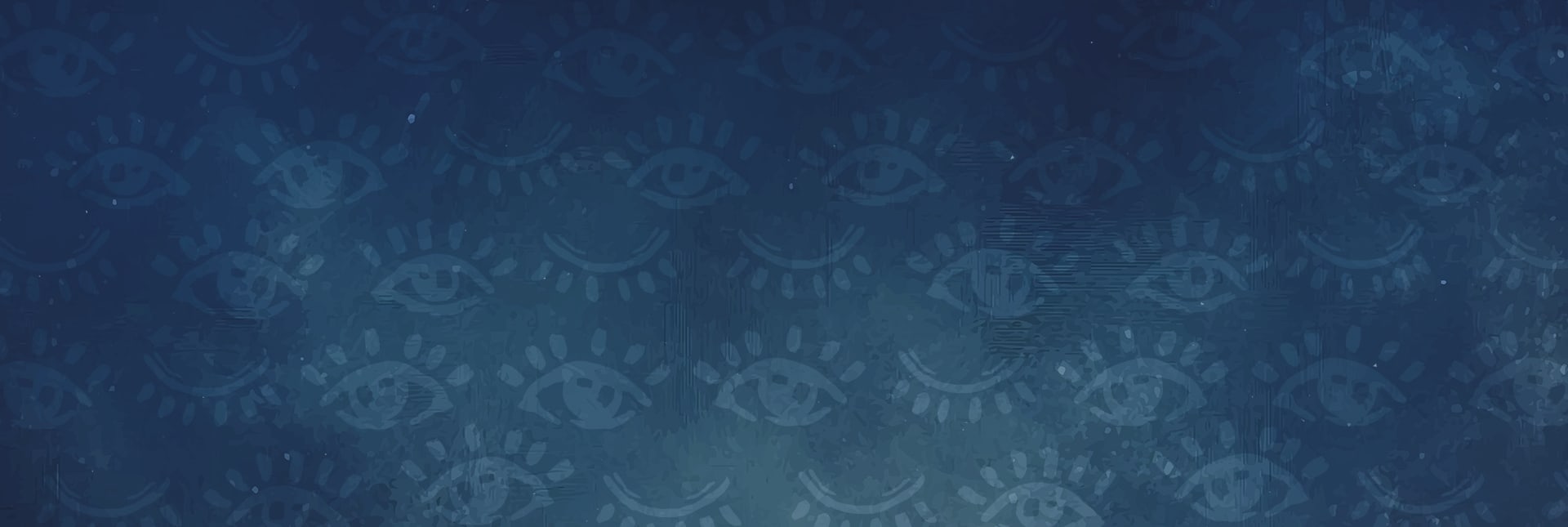
Check Out Our Google Reviews
Wainwright
Vermilion
Blog
Is There Vision Therapy for Children?
Eye Conditions, Vision TherapyThe good news is that there are vision therapy options for children that can help. […]
Can Dry Eye Cause Floaters?
Dry Eye, Eye HealthThe reality is that dry eye itself doesn’t directly cause floaters. Nonetheless, the 2 conditions can sometimes be interconnected due to underlying factors within the eye. […]
What Is IPL Eye Treatment for Dry Eyes?
Dry EyeIntense pulsed light (IPL) treatment for dry eyes is a noninvasive therapy that uses light energy to help reduce inflammation, restore oil gland function, and improve tear quality.
IPL can offer longer-lasting relief by targeting a common root cause of symptoms, meibomian gland dysfunction (MGD).
[…]
Why Does My Eyelid Hurt When I Blink?
Dry Eye, Eye HealthPlenty of common reasons for eyelid discomfort include eye strain, dryness, allergies, pink eye, and styes. Understanding the underlying differences in these causes can help you take steps to finding relief and recognize when to see an optometrist. […]
Is There Vision Therapy for Children?
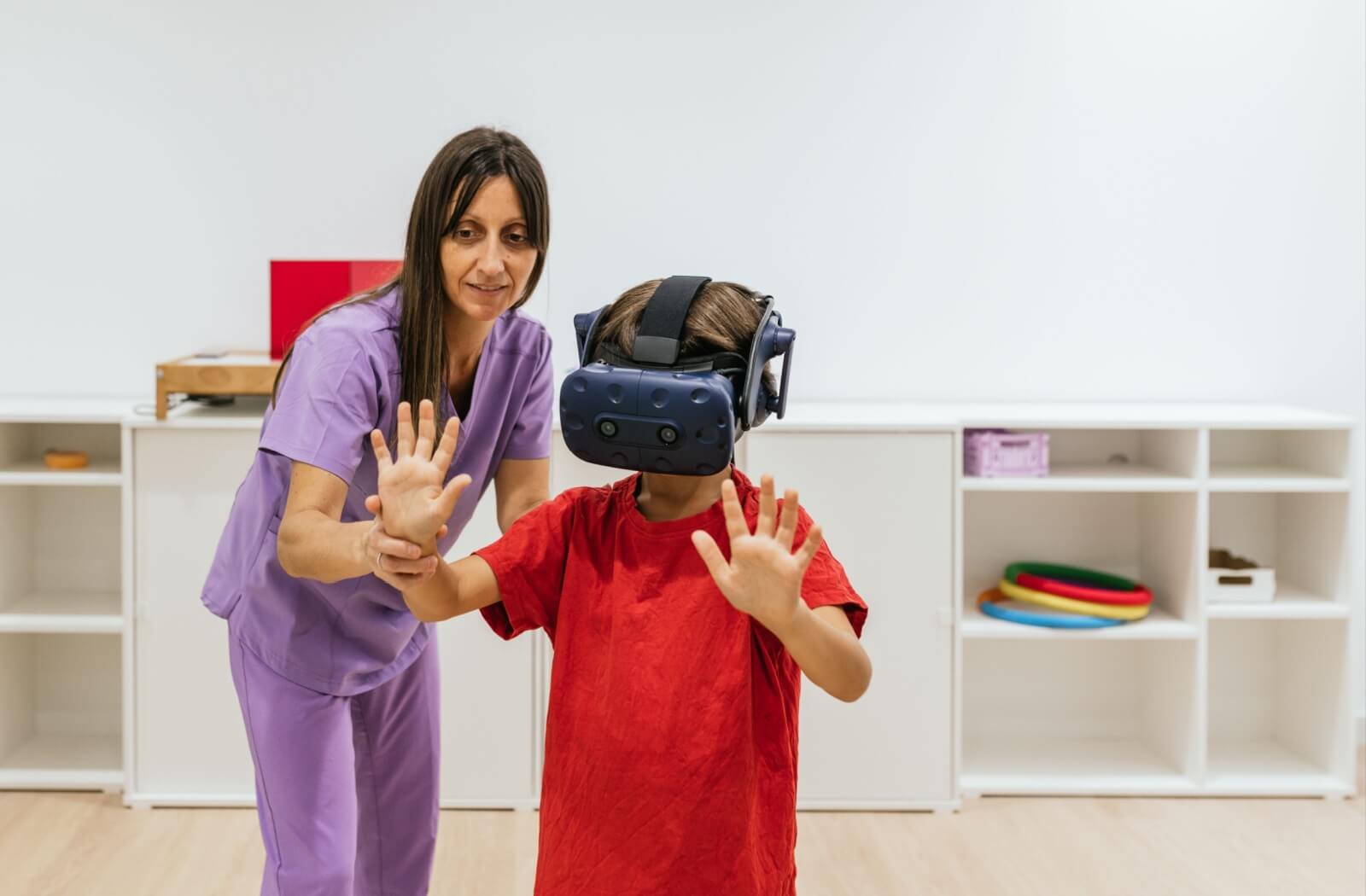
The good news is that there are vision therapy options for children that can help. […]
Can Dry Eye Cause Floaters?

The reality is that dry eye itself doesn’t directly cause floaters. Nonetheless, the 2 conditions can sometimes be interconnected due to underlying factors within the eye. […]
What Is IPL Eye Treatment for Dry Eyes?

Intense pulsed light (IPL) treatment for dry eyes is a noninvasive therapy that uses light energy to help reduce inflammation, restore oil gland function, and improve tear quality.
IPL can offer longer-lasting relief by targeting a common root cause of symptoms, meibomian gland dysfunction (MGD).
[…]
Why Does My Eyelid Hurt When I Blink?

Plenty of common reasons for eyelid discomfort include eye strain, dryness, allergies, pink eye, and styes. Understanding the underlying differences in these causes can help you take steps to finding relief and recognize when to see an optometrist. […]

